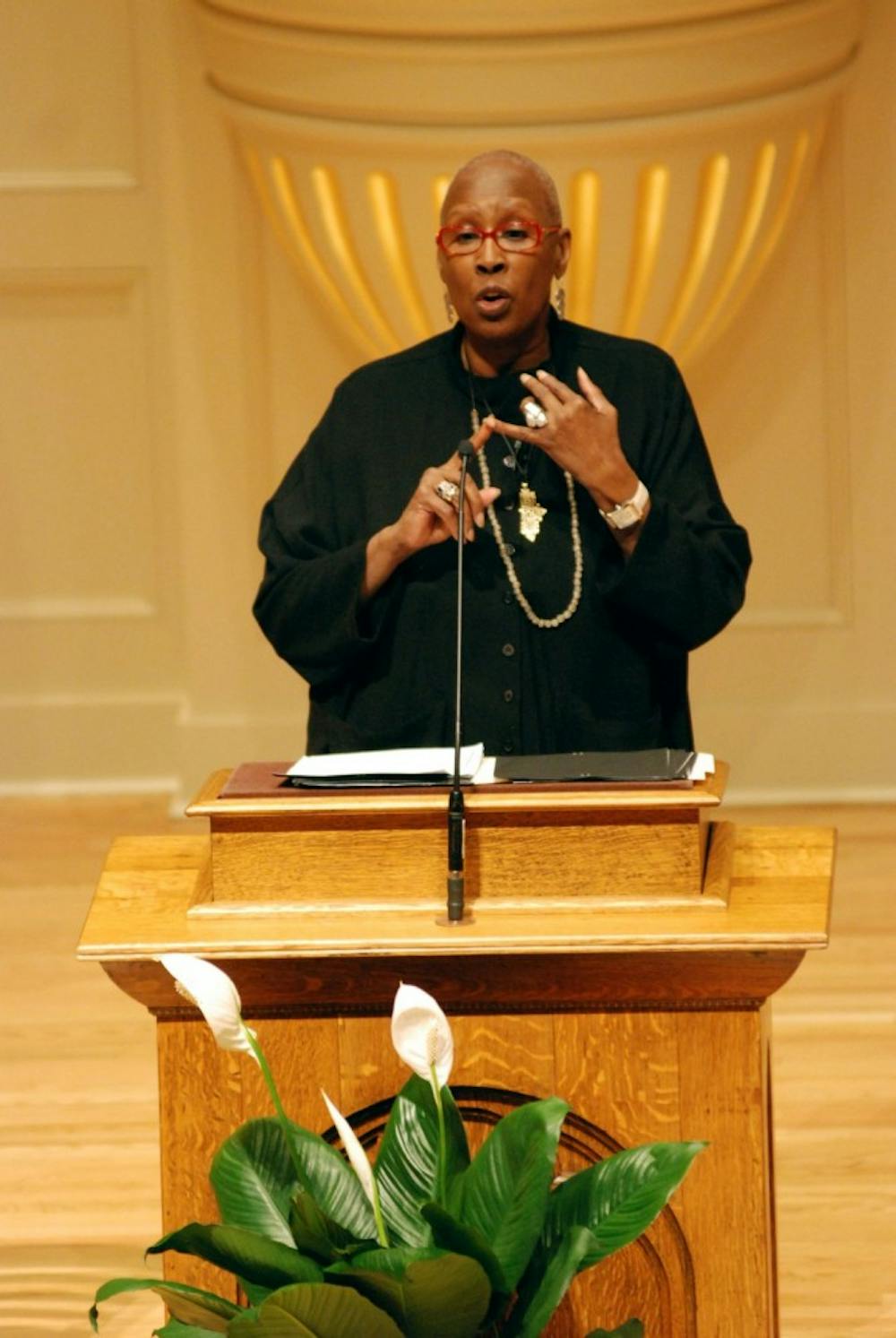Judith Jamison, dancer and choreographer, addressed a fully-seated auditorium with an informal speaking style, advising the primarily student-based audience to live passionately.
Passion has been her guideline to success as a leader, she said.
“The people that make a difference are not always visionaries, but people that passionately and vehemently believe in what they are doing,” Jamison said.
Too often people are fixed on goals they are not truly passionate about, she said.
“I know it looks good on paper, but how does it really feel?” she asked. “Sometimes, you need to be quiet and listen. It is very important in your lives to listen to others and learn what you can from them. Take leaps of faith. Prepare and then proceed.”
Elon’s Center for Leadership selected Jamison as this year’s Isabella Cannon Distinguished Visiting Professor of Leadership and invited her to speak March 5 in Whitley Auditorium.
Jamison gained international recognition through her involvement in the Alvin Ailey Dance Theater. She started dancing for the organization in 1965 and later succeeded its namesake, Alvin Ailey, as artistic director.
Nevertheless, she said her passion for dance is rooted in early childhood experiences.
She spoke of her upbringing in Philadelphia, where she was required to attend church every Sunday. Jamison attributes her church experiences to her initial interest in dance. She described the rhythm and subtle choreography of a church procession, referring to the way the ushers moved and the different choirs as dancelike.
Jamison also identified the relationship between her parents as an influential contribution to her current character.
“My father said, ‘do good,’” she said. “It sounds simple, but it just hit me to my core because it’s so simple and so true.”
Jamison described coming home to her parents dancing around the living room radio. Although her father worked multiple jobs to support the family, he always had time to indulge in some art, Jamison said.
“With those calloused fingers that he had, he would come home and play Rachmaninoff,” Jamison said. “I remember his beautiful, baritone voice. He had studied opera.”
During her earliest foray into dance, Jamison said her family and early dance mentor supported her endeavors. Jamison began dancing at the age of six in a dance studio presided over by her first dance instructor. Despite relocating the dance studio several times because of racial prejudice-fueled complaints, Jamison said she and her fellow dancers always admired their teacher. Jamison stayed with that teacher from the age of six to 17.
“She was a fearless leader and we followed her without any doubt,” Jamison said.
Jamison said she has aspired to her first instructor’s determination and leadership for the rest of her life.
At the age of 21, Jamison participated in what she described as her first and last audition. Jamison saw Alvin Ailey dancing in 1963 and said she instantly wanted to join his dance company. Although she said she failed her audition, Jamison received a call from Ailey the following day, asking if she was interested in dancing for his theatre company.
“If the door doesn’t open for you, build a door,” she said. “Don’t tell me I can’t be something. I will come back and do it so well that you will never forget.”
Jamison served as artistic director for the Alvin Ailey Dance Theater for the following 21 years, a time when Jamison and others transformed the theatre from an organization that had once had a million dollar debt, to one that has an over $50 million endowment and one of the largest dance complexes in the United States. Jamison also formed her own dance company called the Jamison Project.


